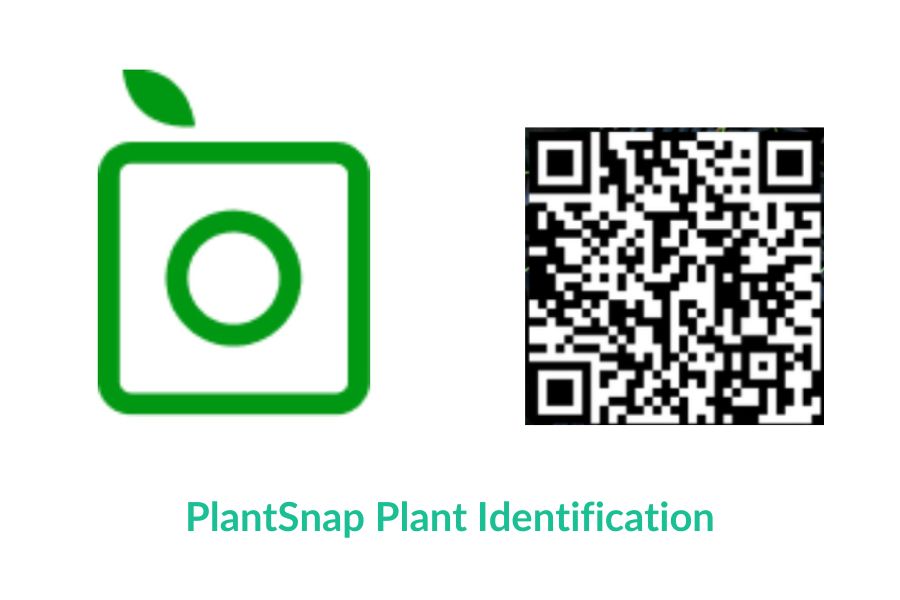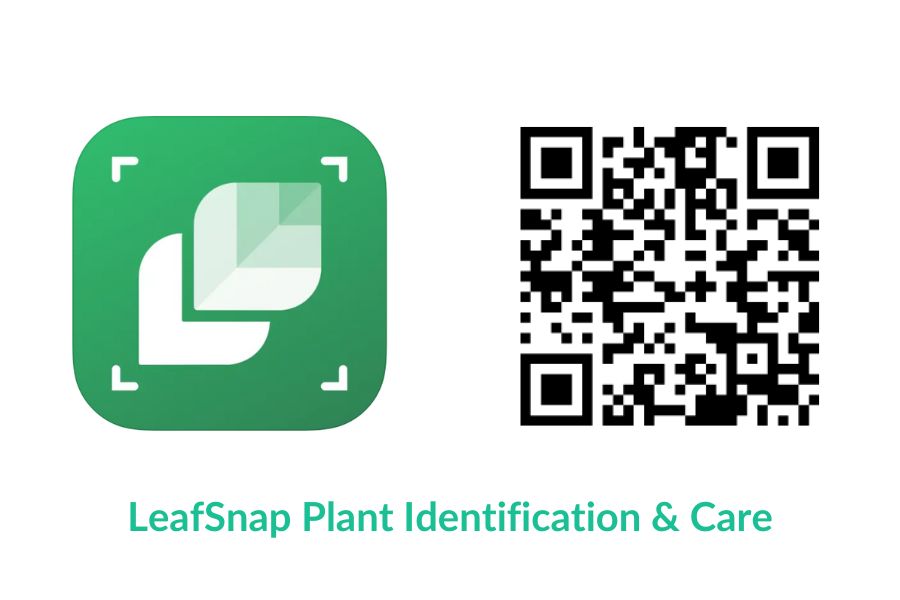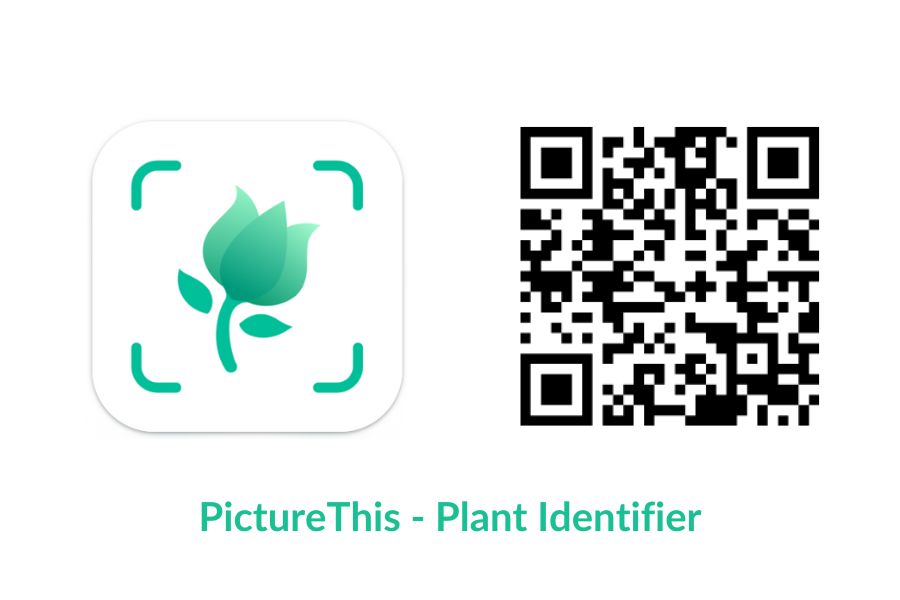Gone are the days where you stumble onto a plant / tree / flower and wonder – “what is the name of that?”. I’d have to take a photo and ask lots of people or trawl through the internet or books to identify it. Another BIG issue was identifying plant issues. We can’t all be walking encyclopedias of things that can affect our plants. Location, soil, sun, water, fungus, insects, animals, etc.
Now you can just use your mobile or tablet device with a plant identification app. So simple.
For many years there was only one app (called Picture This) which dominated the Google and Apple app stores. It just so happened to be the first to market. However there are now some new apps that match it if not beat it in features and usability.
While there are way more than 3 plant apps in the market – this review only looks at the top 3. When and if the other apps get better and are able to compete with these top 3, then we’ll include them as well.
Let’s go through them and you can decide which you’d like to try based on our reviews.
Plant Snap
iOS – https://apps.apple.com/us/app/plantsnap-identify-plants/id1451054346
Google – https://play.google.com/store/apps/details?id=com.fws.plantsnap2&pli=1

Pros:
- Plant Snap utilizes advanced image recognition technology to accurately identify various plant species, making it a valuable tool for botany enthusiasts, gardeners, and nature lovers.
- The app features an intuitive and easy-to-use interface, making it accessible to users of all skill levels. Its straightforward design allows users to quickly snap a photo of a plant and receive identification results.
- Plant Snap boasts a vast database of plant species, including flowers, trees, shrubs, succulents, and more. This comprehensive library ensures that users can identify a wide range of plants from around the world.
- Beyond simple plant identification, Plant Snap serves as an educational resource by providing detailed information about each identified plant. Users can learn about plant characteristics, habitat, care tips, and more, enhancing their knowledge of botany and gardening.
- The app fosters a sense of community among users through features like sharing plant sightings, participating in challenges, and connecting with fellow plant enthusiasts. This social aspect adds value to the user experience and encourages engagement.
- Plant Snap offers offline functionality, allowing users to identify plants even in areas with limited or no internet connectivity. This feature is especially useful for outdoor enthusiasts exploring remote locations.
Cons:
- While the app is free to download, access to certain features may require a subscription or in-app purchases. Some users may find this pricing model restrictive or prefer a one-time purchase option.
- While Plant Snap’s image recognition technology is impressive, it may not always provide accurate identifications, particularly for obscure or poorly photographed plants. Users may encounter misidentifications or receive vague results, diminishing the app’s reliability in some cases.
- While the offline functionality is convenient, the app’s offline database may not include all plant species available in the online version. Users may experience limitations in plant identification accuracy and coverage when using the app offline.
- Plant Snap’s image recognition technology requires significant computational resources, which can drain device battery life and slow down performance, especially on older or less powerful devices.
- Like many apps that rely on user-generated content, Plant Snap may raise privacy concerns related to data collection and sharing. Users should review the app’s privacy policy and settings to understand how their information is used and protected.
- The app’s plant database may be more robust for certain regions or climates, leading to variations in identification accuracy and coverage depending on the user’s location. Users in less well-represented regions may find the app less useful.
Leaf Snap
iOS – https://apps.apple.com/us/app/leafsnap-plant-identification/id1487972880
Google – https://play.google.com/store/apps/details?id=plant.identification.snap&hl=en_US&gl=US

Pros:
- Leaf Snap utilizes advanced image recognition technology specifically tailored for identifying plant leaves, providing highly accurate results. This makes it an invaluable tool for botany enthusiasts, horticulturists, and nature lovers seeking to identify plant species.
- The app features a user-friendly interface designed for ease of use, allowing users to simply snap a photo of a leaf and receive identification results quickly. Its intuitive design makes it accessible to users of all skill levels.
- Leaf Snap boasts a comprehensive database of plant species, focusing specifically on leaves. This extensive library covers a wide range of plants, including trees, shrubs, flowers, and more, enhancing the app’s utility for various purposes.
- Beyond identification, Leaf Snap serves as an educational resource by providing detailed information about each identified plant species. Users can learn about leaf characteristics, habitat, growth habits, and more, enriching their understanding of botany and ecology.
- The app fosters a sense of community among users through features such as sharing leaf sightings, participating in challenges, and connecting with fellow plant enthusiasts. This social aspect adds value to the user experience and encourages engagement.
- Leaf Snap offers offline functionality, allowing users to identify leaves even without an internet connection. This feature is particularly useful for outdoor enthusiasts exploring remote areas where internet access may be limited or unavailable.
Cons:
- While the app may be free to download, access to certain features or the full plant database may require a subscription or in-app purchases. This pricing model could deter some users who prefer a one-time purchase option or those who are unwilling to pay for additional features.
- While Leaf Snap aims to cover a wide range of plant species, its database may not include every plant species worldwide. Users may encounter limitations in identification accuracy and coverage, particularly for less common or regional plants.
- Despite its advanced technology, Leaf Snap may not always provide accurate identifications, especially for poorly photographed or obscure plant leaves. Users may experience misidentifications or receive vague results, reducing the app’s reliability in some instances.
- Leaf Snap’s image recognition technology may require significant computational resources, potentially draining device battery life and slowing down performance, especially on older or less powerful devices.
- Like many apps, Leaf Snap may raise privacy concerns related to data collection and sharing. Users should review the app’s privacy policy and settings to understand how their information is used and protected.
- While Leaf Snap excels at identifying plant leaves, it may struggle with plants that lack distinctive leaf features or exhibit seasonal variations. Users may need to supplement leaf identification with other methods for comprehensive plant identification.
Picture This
iOS – https://apps.apple.com/us/app/picturethis-plant-identifier/id1252497129
Google – https://play.google.com/store/apps/details?id=cn.danatech.xingseus

Pros:
- PictureThis employs advanced image recognition technology to accurately identify various plant species, making it a valuable tool for gardeners, botany enthusiasts, and nature lovers.
- The app features an intuitive and user-friendly interface, allowing users to easily snap a photo of a plant and receive identification results quickly. Its simple design makes it accessible to users of all skill levels.
- PictureThis boasts a vast database of plant species, including flowers, trees, shrubs, succulents, and more. This comprehensive library ensures that users can identify a wide range of plants from around the world.
- Beyond identification, PictureThis serves as an educational resource by providing detailed information about each identified plant species. Users can learn about plant characteristics, care tips, habitat, and more, enriching their knowledge of botany and gardening.
- The app fosters a sense of community among users through features like sharing plant sightings, participating in challenges, and connecting with fellow plant enthusiasts. This social aspect adds value to the user experience and encourages engagement.
- PictureThis offers offline functionality, allowing users to identify plants even without an internet connection. This feature is especially useful for outdoor enthusiasts exploring remote areas where internet access may be limited or unavailable.
Cons:
- While the app is free to download, access to certain features or the full plant database may require a subscription or in-app purchases. This pricing model may deter some users who prefer a one-time purchase option or those who are unwilling to pay for additional features.
- Despite its advanced technology, PictureThis may not always provide accurate identifications, especially for poorly photographed or obscure plants. Users may encounter misidentifications or receive vague results, reducing the app’s reliability in some cases.
- PictureThis’s image recognition technology may require significant computational resources, potentially draining device battery life and slowing down performance, especially on older or less powerful devices.
- Like many apps, PictureThis may raise privacy concerns related to data collection and sharing. Users should review the app’s privacy policy and settings to understand how their information is used and protected.
- PictureThis relies heavily on the quality of the photos taken by users. Poor lighting, blurry images, or obscured plant features may hinder accurate identification, requiring users to take multiple photos or adjust their technique for optimal results.
- While PictureThis aims to cover a wide range of plant species, its database may be more comprehensive for certain regions or climates. Users in less well-represented areas may encounter limitations in identification accuracy and coverage.
Conclusion
In conclusion, the best plant app for you depends on your specific needs and interests. If you’re primarily interested in identifying plants on the go, PlantSnap or PictureThis might be your best bet. For a more social and interactive experience, LeafSnap could be the perfect fit. Consider trying out a few apps to see which one resonates with you the most!
Aaron has slowly grown into gardening (pun intended) after he turned 30 years old in the pursuit to become more sustainable and began the simple act of making compost from the household daily food scraps. Having been raised in suburbia and only having known a city urban environment, there has been a big learning curve in all areas of plants and gardening. Aaron now writes about his passion for gardening in all forms for this website and others and is truly a Plant Carer.









0 Comments